This may be a bit tangential to your question. But, what caught my attention is the specific formula. You are trying to find the triangular root of Tn - 1 (where Tn is the nth triangular number).
I.e.:
Tn = n * (n + 1) / 2
and
Tn - n = Tn - 1 = n * (n - 1) / 2
From the nifty trick described here, for Tn we have:
n = int(sqrt(2 * c))
Looking for n such that Tn - 1 ≤ c in this case doesn't change the definition of n, for the same reason as in the original question.
Computationally, this saves a few operations, so it's theoretically faster than the exact solution (1). In reality, it's probably about the same.
Neither this solution or the one presented by David are as "exact" as your (1) though.

floor((1 + sqrt(1 + 8*c))/2) (blue) vs int(sqrt(2 * c)) (red) vs Exact (white line)

floor((1 + sqrt(1 + 8*c))/2) (blue) vs int(sqrt(0.25 + 2 * c) + 0.5 (red) vs Exact (white line)
My real point is that triangular numbers are a fun set of numbers that are connected to squares, pascal's triangle, Fibonacci numbers, et. al.
As such there are loads of identities around them which might be used to rearrange the problem in a way that didn't require a square root.
Of particular interest may be that Tn + Tn - 1 = n2
I'm assuming you know that you're working with a triangular number, but if you didn't realize that, searching for triangular roots yields a few questions such as this one which are along the same topic.

